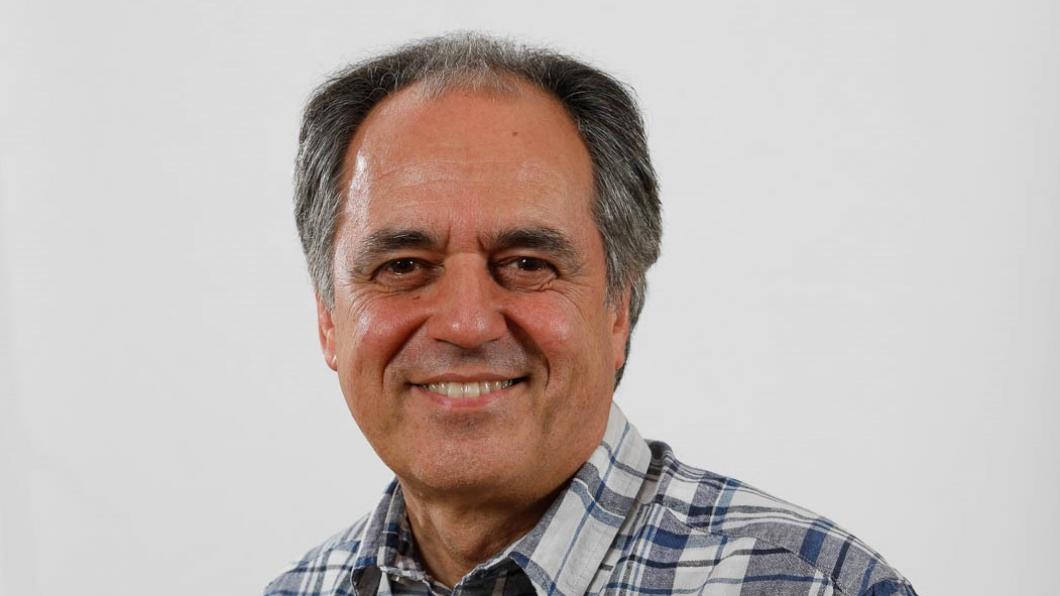
Holland Bloorview’s research institute is excited to present Dr. Franco Carnevale as the keynote and knowledge connections speaker for the 2018 Pursuit Award Ceremony. Dr. Carnevale is a nurse, psychologist, and clinical ethicist, and is the founder and principal investigator for VOICE (Views On Interdisciplinary Childhood Ethics) - a McGill University-based international initiative to advance knowledge and practices relating to ethical concerns in childhood. Dr. Carnevale will deliver an inspiring presentation entitled 'Listening authentically to the voices of children and youth: New directions in childhood ethics'.
RSVP now to the Pursuit Award Ceremony on May 15, 2018! To reserve your spot, email BRIevents@hollandbloorview.ca.
Below, learn more about Dr. Carnevale, why childhood disability research is so important, and his advice for the next generation of researchers in the field.
Q&A with Dr. Franco Carnevale
Q1: What drove your interest in nursing and psychology?
For nursing, my interest was and continues to be driven by the ‘hands on’ proximity with children and youth (I’ve worked almost my entire career in paediatrics); as well as the holistic focus on all dimensions of wellbeing. These include biological, mind, social, cultural, political, moral, and spiritual dimensions and how these are all integrated aspects of a whole child/youth, who is relationally embedded in a family and broader social context. Good nursing involves attending to all dimensions – they all matter.I turned to psychology, as well, to further enrich my understanding and expertise in the psychological realms of health, which seemed seriously under-valued over 30 years ago when I pursued this additional education. My background in psychology has also enriched my understanding of clinical ethics, allowing me to draw on moral psychology, moral reasoning, moral distress, as well as relational reconciliation of ethical disagreements to strengthen my attunement to the many complex ethical concerns that I encounter in my practice as a clinical ethicist.
Q2: What aspects of the field of childhood disability – including research – interests you most and why?
I worked over 28 years full-time in paediatric critical care. Over that time, I was able to see a significant rise in the efficacy of resuscitative measures, which have been largely celebrated. However, I also noted a malaise among many toward the growing number of critical care ‘survivors’ that lived with complex health care needs. For many, these survivors have been regarded as ‘lesser successes’, highlighting for me a persistent pre-judgement toward life with disability. I became awakened to many deeply-entrenched discriminatory views and practices toward children/youth with disabilities. It became clearly important to me to devote a significant focus of my research as well as my clinical ethics practice toward assisting/working with these populations.
Q3: What inspires you?
So much! Learning from others; children, youth, parents, and community members, as well as researchers and professionals who have developed innovative ways of understanding things, shedding light on how we can provide better care and better professional education, as well as conduct better research.
Q4: What advice do you have for students interested in pursuing research in childhood disability?
Two things: First, commit to learning from the real experts – children, youth and their families. Learn to listen authentically to their experiences and let your understandings be transformed by these learnings. Second, commit to ‘true interdisciplinary’ learning, practice and research. Inter-professional collaboration is necessary but not sufficient. You need to learn from disciplinary perspectives beyond the conventional health professions, to more adequately understand the multiple dimensions of health and wellbeing.
Q5: What do you want people to know most about real-life implications that research can have?
When research is conducted respectfully – as well as rigorously – it will produce knowledge that is valued and helpful for those who are espoused to be the focus of the research. Respectful research involves meaningful collaborations with those whom the research is supposed to help or assist, by seeking their input in defining research priorities, developing optimal designs, conducting thoughtful interpretations, and specifying supportive utilization strategies.